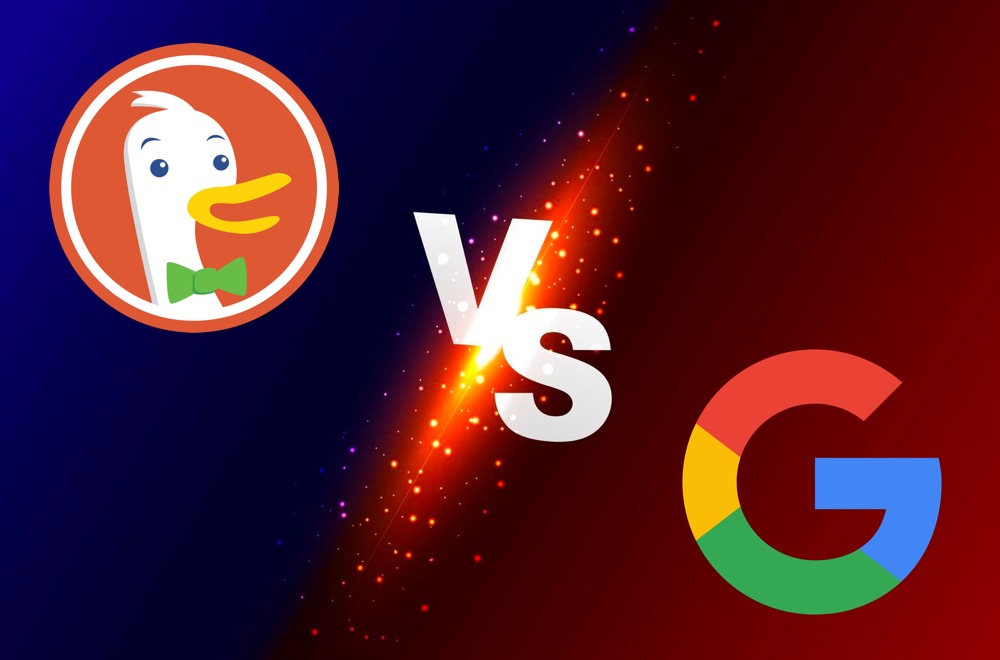

Sergey Brin and Larry Page started Google in 1998 when they were grad students at Stanford University. According to the founders, their mission from the start was "to organize the world's information and make it universally accessible and useful" and its unofficial slogan was "Don't be evil", later replaced by "Do the right thing" the corporate code of conduct.
The name "Google" comes from a misspelling of "googol", which is a number represented by a 1 followed by one-hundred zeros. In their original research paper on PageRank, Page and Brin wrote "We chose our systems name, Google, because it is a common spelling of googol, or 10100 and fits well with our goal of building very large-scale search engines."
Google started selling advertisements affiliated with search keywords soon after launch. It changed an auction format and revenue exploded, so much so, that the company tried to keep its success a secret to avoid attracting copycats.
Google began collecting unprecedented amounts of user data based on searches and information stored in its free email service gmail. The user data allowed the company to target advertising beyond what was traditionally possible, and gain a stranglehold on the search engine market.
Some have questioned whether such a business model and monopolistic business practices, meet the standard of its original company mantra, "Don't be evil". Others, such as Peter Thiel, have questioned why Google works with Chinese researchers on Artificial Intelligence, knowing is will be used by the Chinese military, while simultaneously refusing to work with the United States military.
On February 29, 2008, Gabriel Weinberg founded DuckDuckGo in Valley Forge, Pennsylvania. DuckDuckGo goes to great length to protect the privacy of its users. It does not store of share personal information of its users for advertisements. Other search engine, such as Google, save the search history with the time and date, information about the system (such as IP address, unique identifier in a browser cookie, and user agent), and user's account information.
According to Weinberg, the name of the company is based on the children's game duck, duck, goose. "Really it just popped in my head one day and I just liked it. It is certainly influenced/derived from duck duck goose, but other than that there is no relation, e.g., a metaphor." explained Weinberg.
When asked about DuckDuckGo's main differentiator from other search engines, Gabriel Weinberg explains "By default, DuckDuckGo does not collect or share personal information. That is our privacy policy in a nutshell." It maintains logs of all search terms used "though not in a personally identifiable way".
A growing interest in privacy has led to a meteoric rise in the number of searches DuckDuckGo processes. In 2012 the company was handling 1.5 million searches per day. In January 2021, the company reported it broke through the barrier of 100 million searches per day.
It's a common perception that no one serves better search results than Google but is that always the case? Google might govern the global search market, but still facing a lot of criticism. It has been accused of bias, violating user privacy, fined for antitrust issues, and much more. It's no secret that Google stores the browsing history of users and shares their information with the third-parties. No one is willing to trade their personal information and go for other search engines for increased privacy.
DuckDuckGo is considered one of the most secure search engines. The subtitle of DuckDuckGo defines it as a search engine that does not track your data. It's a search engine with less clutter, smarter answers, and real privacy. The main purpose of this search engine is to keep the users' data private. If users visit any e-commerce site, they will not see advertisements related to their previous searches.
Google is accused of showing bias results and not allowing conservative results to appear on the search result. However, Google claims that there is no bias, but many conservatives do not agree with it. Google is on the mission to bring the benefits of machine learning and artificial intelligence to everyone. According to them, they care about mitigating pre-existing societal biases. Machine learning fairness algorithm aims to prevent prejudicial or unjust treatment with people based on religion, gender, race, sex, and income.
But is that really what's happening? Here are some test cases that will shed interesting results.
When you search for something on Google, it prioritizes results and biases towards its own services and products. Moreover, it tracks your searches and shares your data with advertisers. Search something on DuckDuckGo, and you get links with the information you are looking for. It does this without tracking and storing your search history and sharing your information with advertisers.
Let's start with the test cases of classic search.
Test case 1: Thai restaurants Brooklyn
Here is an example of "Thai restaurants Brooklyn" search on Google and DuckDuckGo. When I made this search on Google, it showed results based on location.
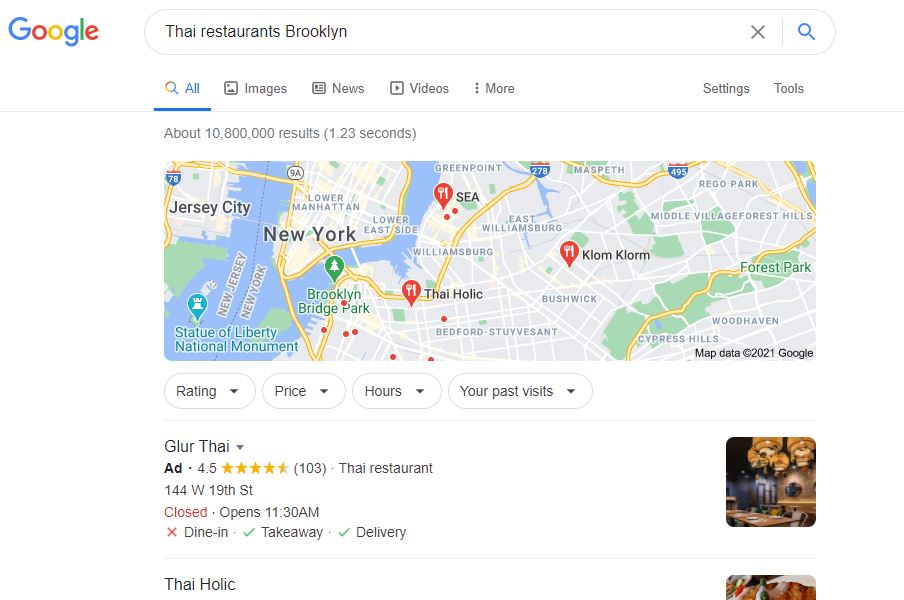
However, DuckDuckGo showed me the best 10 Thai Restaurants in Brooklyn.
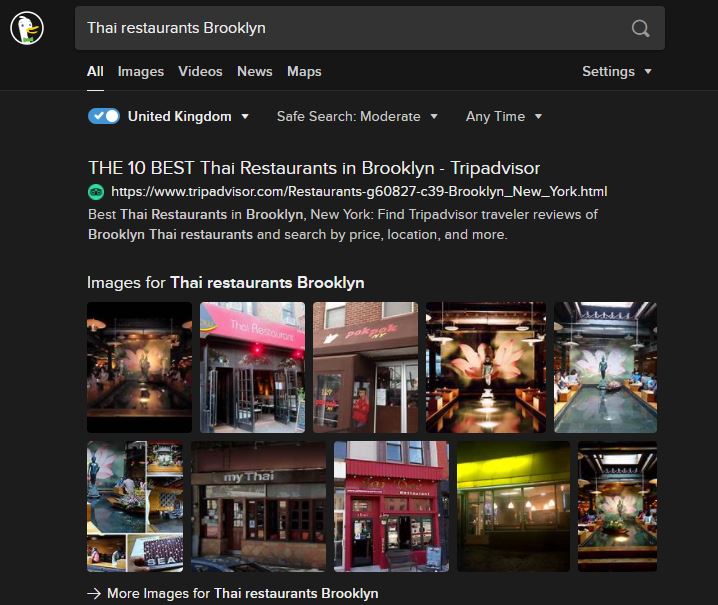
DuckDuckGo wins in terms of privacy. But if privacy is not a big deal for you, then Google is an incredible search engine. It shows unique content and offers built-in features like Google Maps that help better in this kind of search. In this test case, Google proved a better option as it displays local listings using Google maps.
Test case 2: What is theory of relativity?
I have searched on "What is the theory of relativity?" on Google. You can see the results below. It showed me highly ranked or paid websites on the top. It's great for Google but bad for the websites below that contain the same information, but you will never visit them.
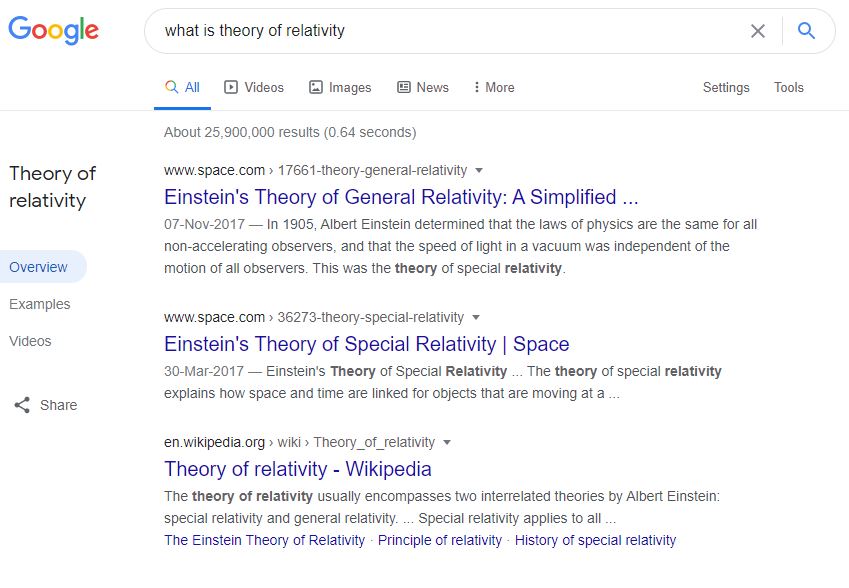
Do the same search on DuckDuckGo, and you will see the top result is Wikipedia.
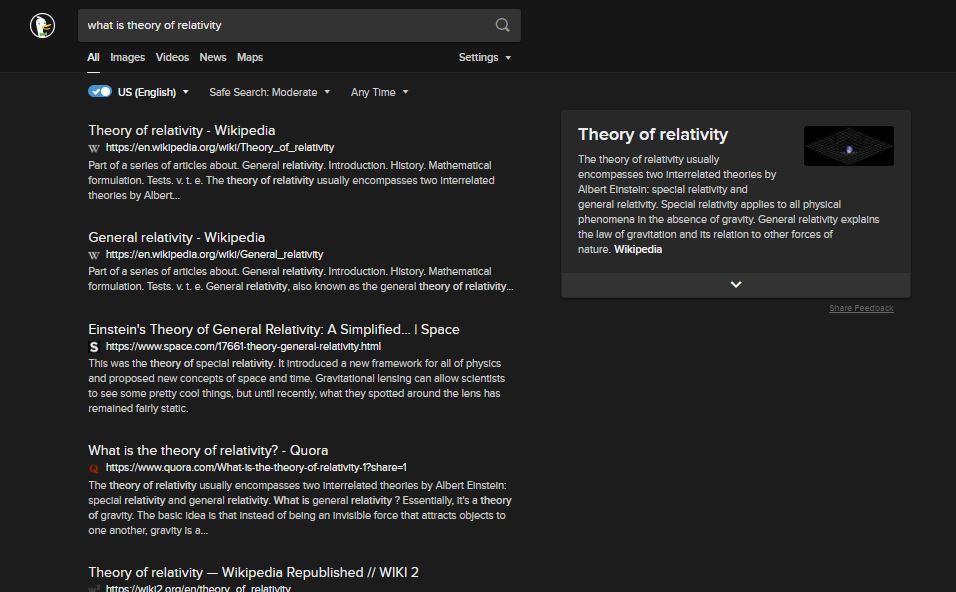
It might not be a big deal for you but it's how Google works. The search engine prioritizes the results and shows biased behavior.
Test case 3: Bitchute
I did research on "Bitchute" which is a Youtube alternative or competitor. Google showed many results saying that Bitchute is Neo-Nazi propaganda and a hotbed for violence.
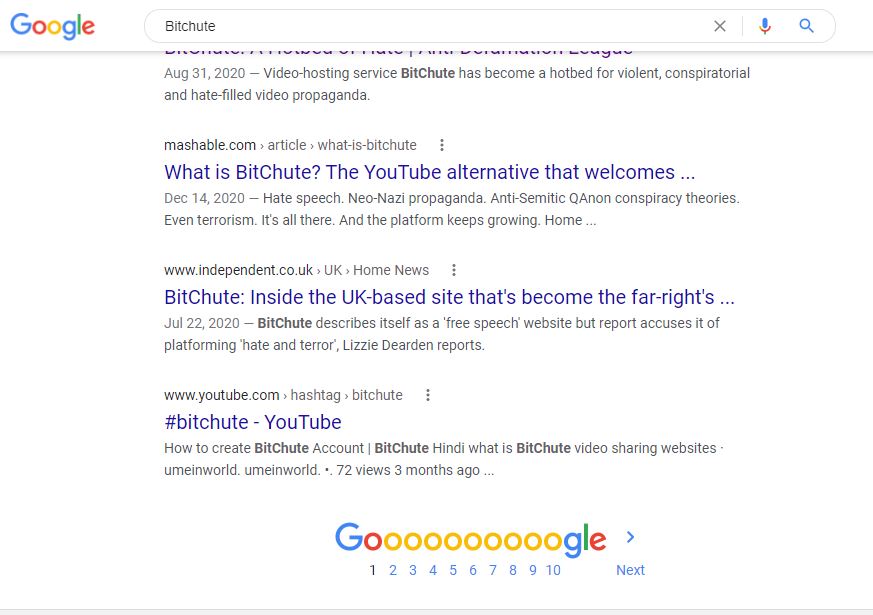
Then I searched it on DuckDuckGo, and the results were neutral, showing it as a video hosting platform like YouTube.
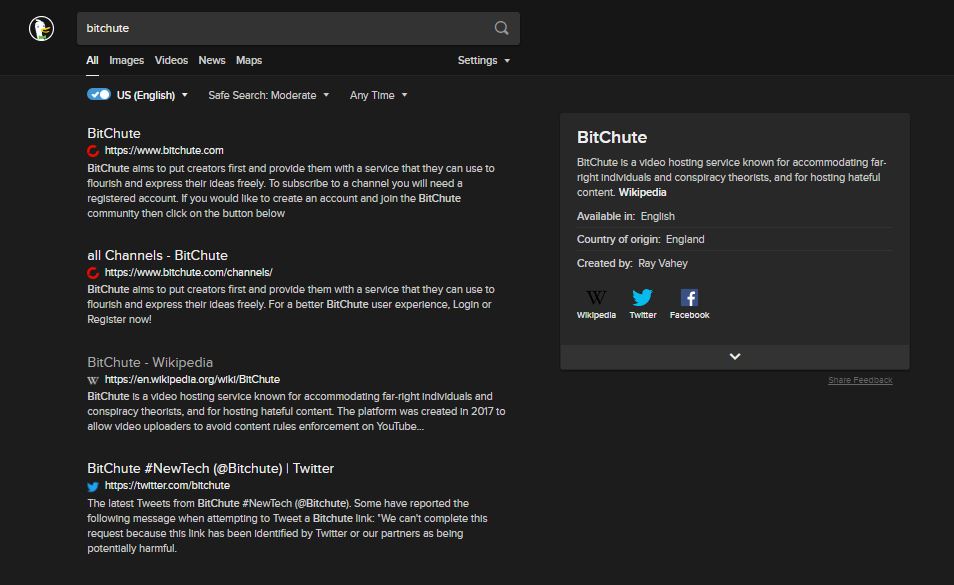
The evidence is clear, and it seems like Google is trying to hurt a competitor.
Here are some searches that appear to be influenced by Google's ML Fairness algorithm.
Test case 4: White men
When I searched "White men" on Google, it showed results with the white woman and black men. Here is the evidence that Google shows the most biased results.
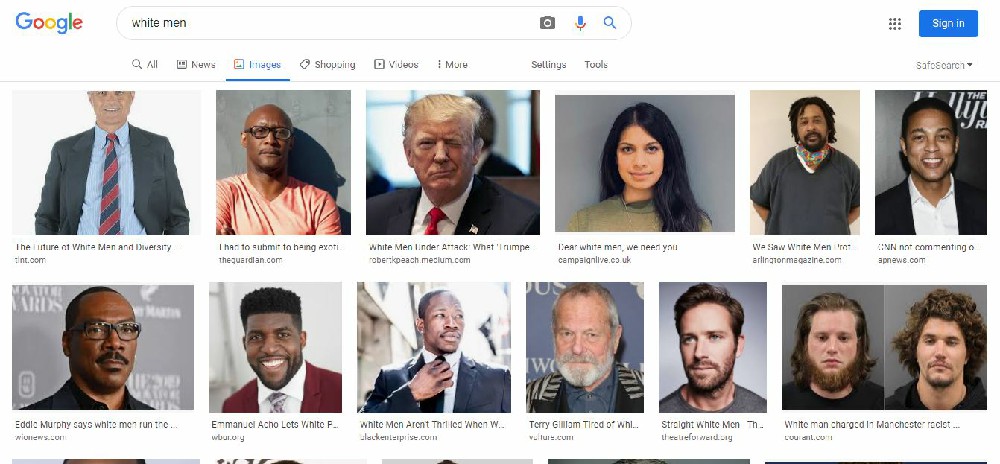
Then I did the same search on DuckDuckGo. It showed me the more accurate and less biased results.
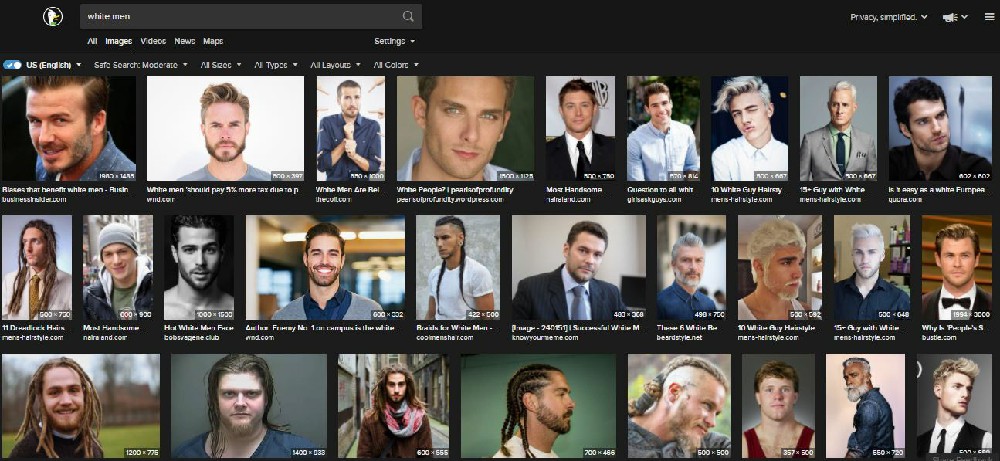
Test Case 5: Black men
When searching on Google, everyone expects unbiased results. Search for the “Black men”. Google will again show biased results.
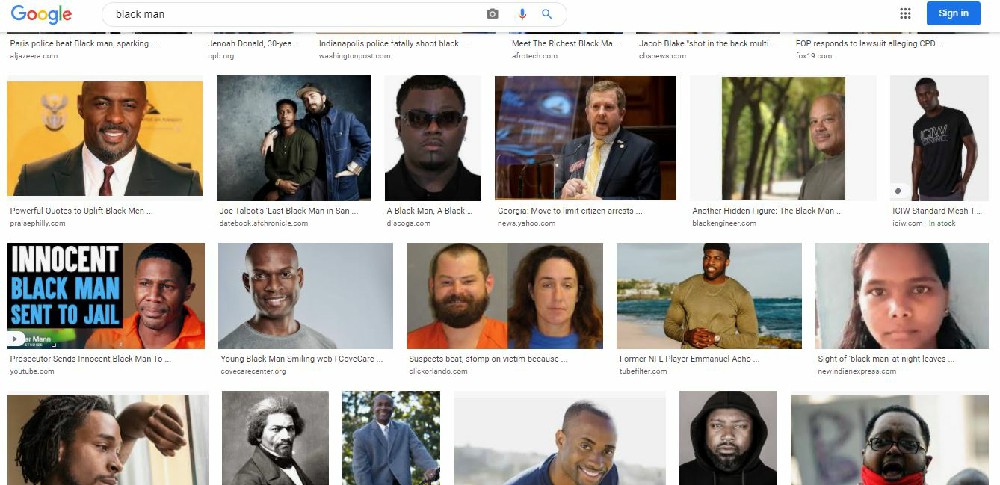
Here are results of the same search on DuckDuckGo, which are completely unbiased.
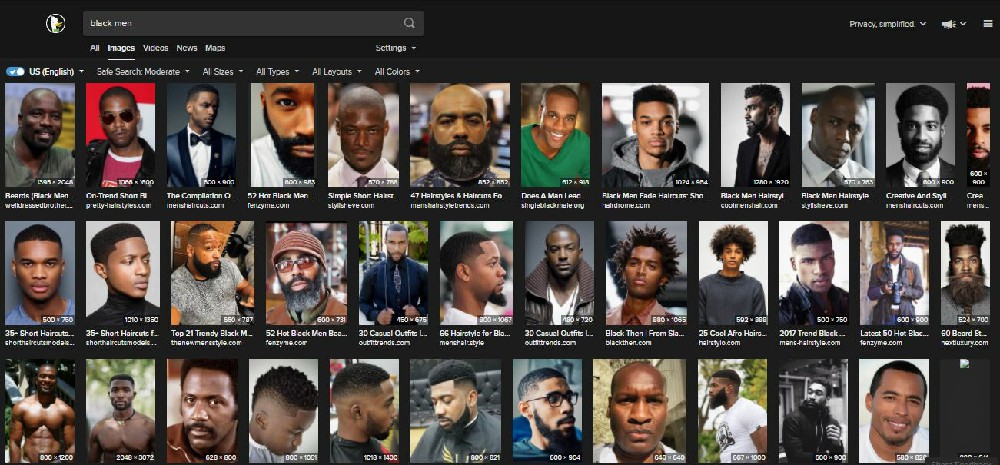
Test case 6: Straight Couples
I searched for “Straight Couples” on Google. Straight couples mean heterosexual, but Google showed a lot of homosexual couples.
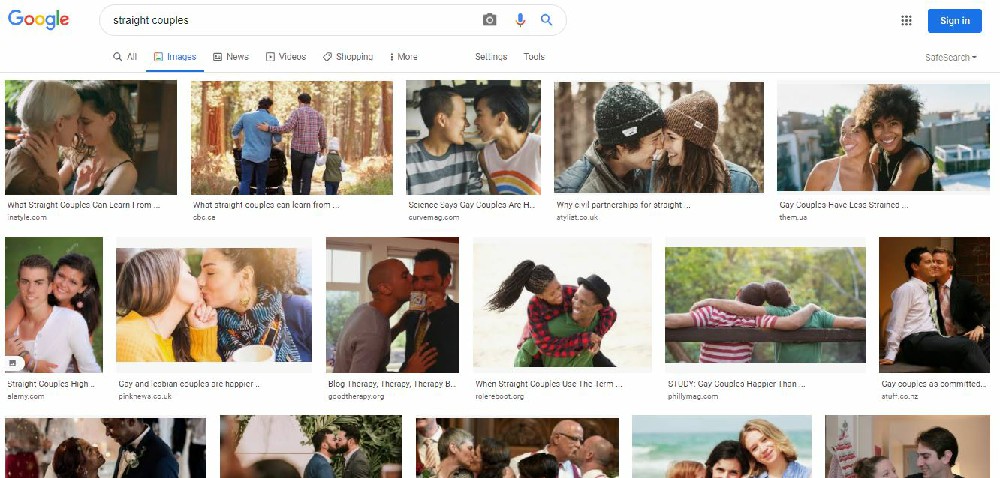
I did the same search on DuckDuckGo. It also show some homosexual couples but these are far less than what Google showed.
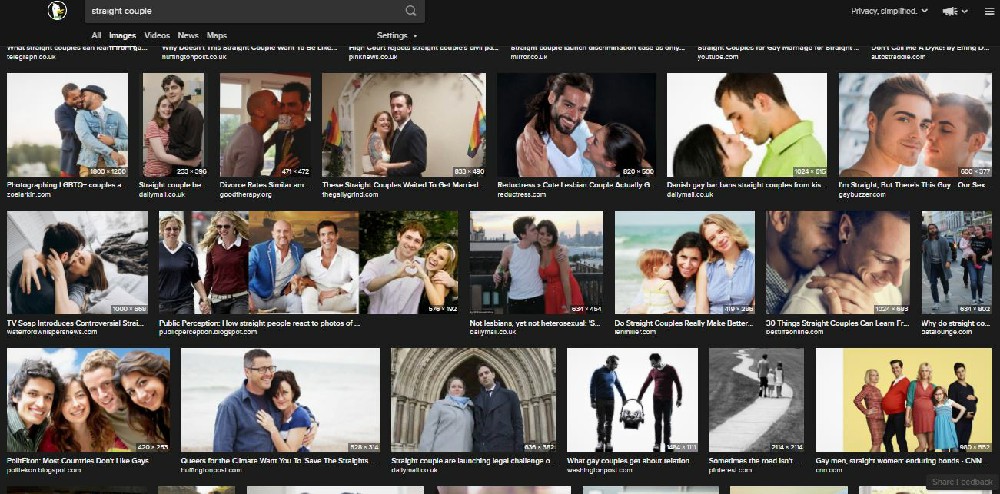
Test case 7: Straight white couple
I searched for the "Straight white couple" and Google showed results with many homo-sexual and non-white couples. It also showed a white fist with "HATE" written across the knuckles.
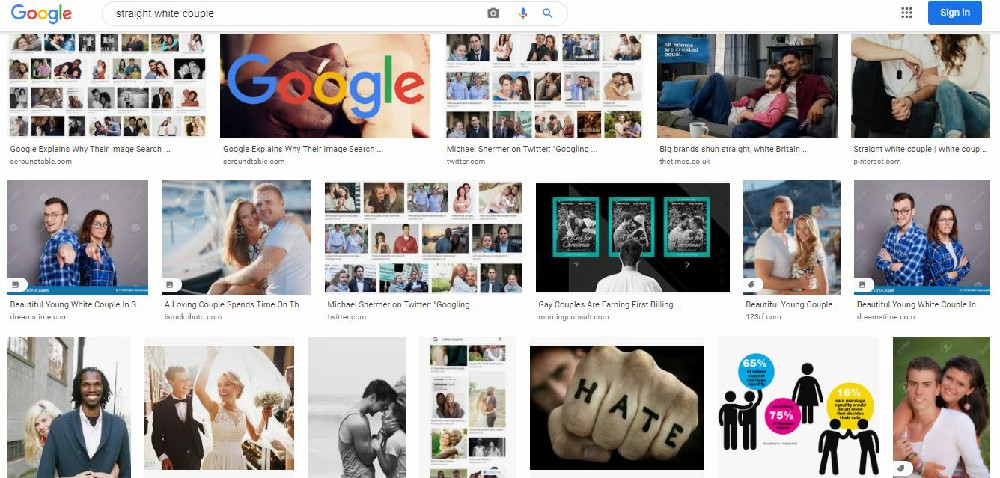
However, the same search on the DuckDuckGo showed more unbiased results than Google.
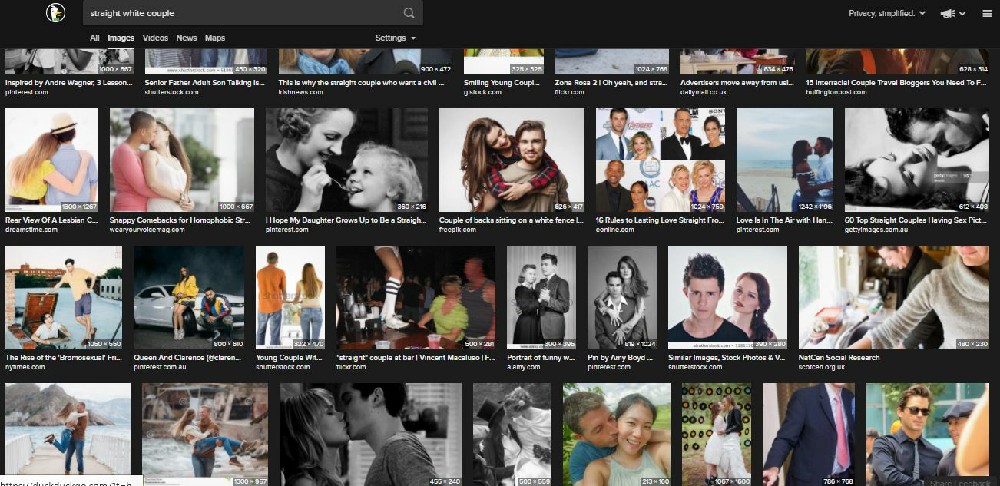
Test case 8: European art
I searched for "European Art" and wondered to see Mosa Lisa in search results. Do you imagine that? In Google, the first image is of a black woman.
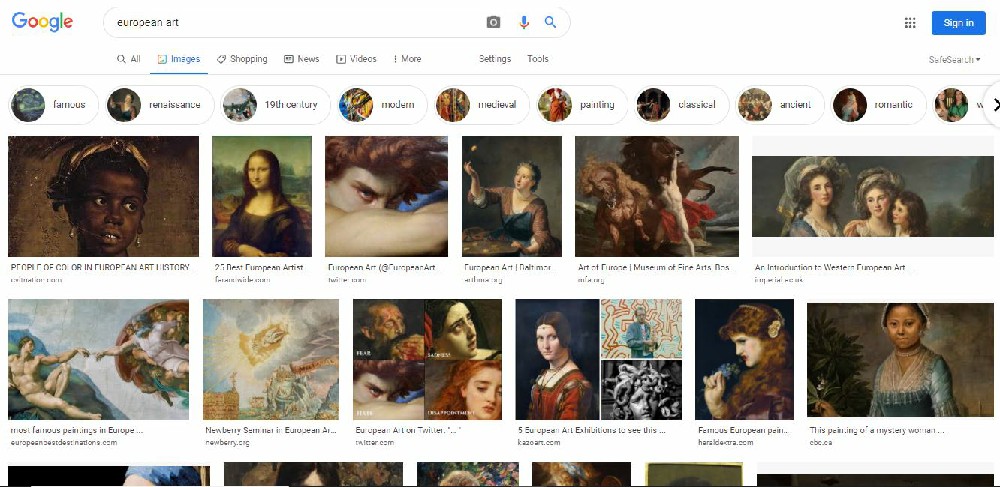
DuckDuckGo results on the search "European Art" are unbiased.
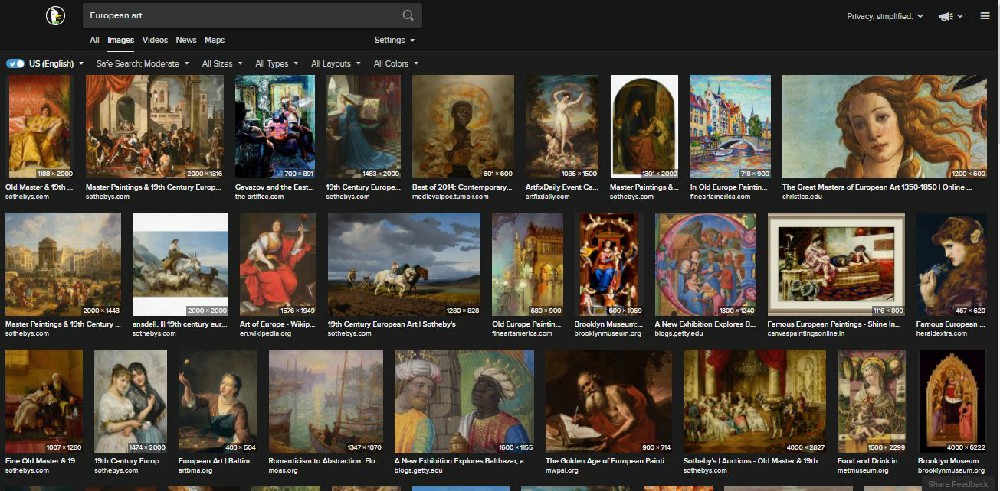
From these test cases, I concluded that DuckDuckGo is not biased as Google. Google shows search results by ranking its authoritative sources instead of what users actually searched for. DuckDuckGo is the right option if you want unbiased search results and better privacy.
Cancel Comeback Contributor